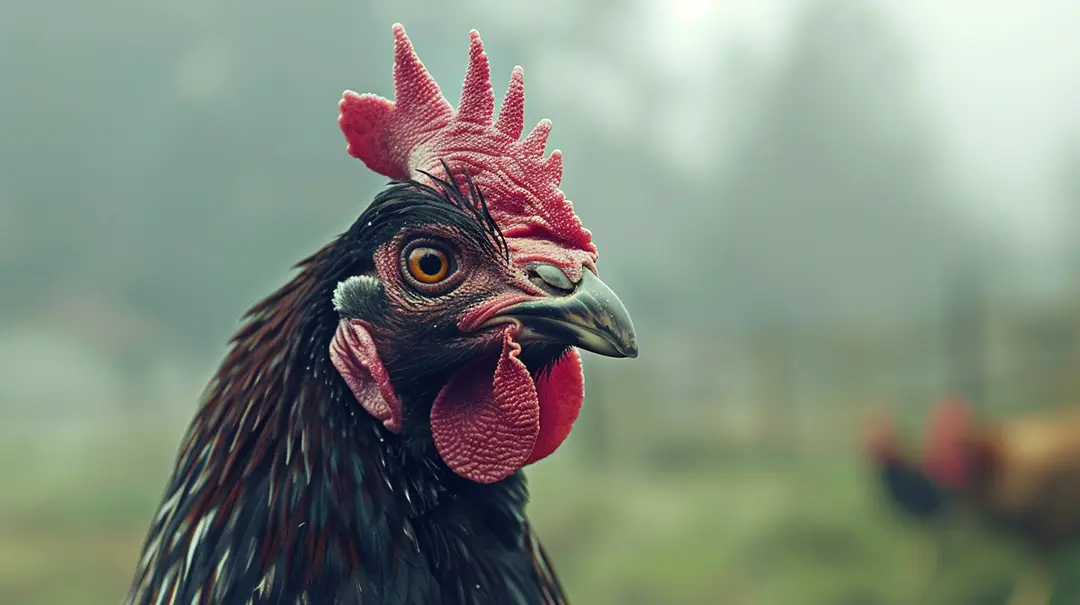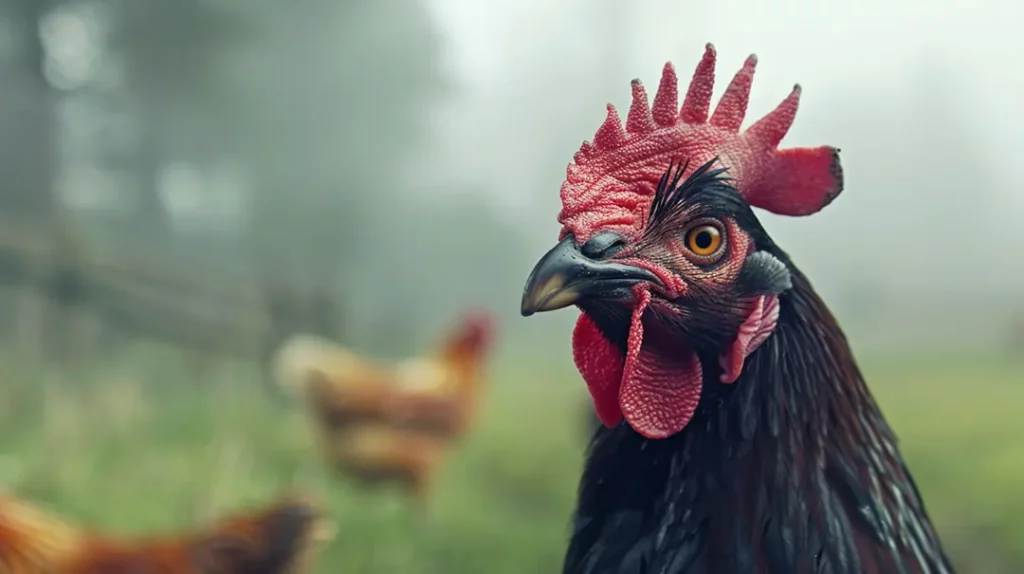
The Maltese Black Chicken is more than just a unique breed; it represents Malta's agricultural history and resilience. Created in the 1930s to address local farming challenges, this dual-purpose bird boasts distinct physical traits and thrives in the Mediterranean climate.
The Maltese Black Chicken, holds a special place in Malta’s agricultural heritage. This unique breed isn’t just any chicken; it symbolises resilience and adaptability, reflecting the island’s rich history and cultural significance.
Beyond its striking appearance, the Maltese Black Chicken boasts a fascinating backstory. Developed in the 1930s to address local farming challenges, this chicken breed has been an integral part of Maltese life for decades.
The Maltese Black Chicken, known locally as it-tiġieġa s-sewda, emerged in the 1930s under an initiative by the Maltese Department of Agriculture. This effort was driven by a need to bolster local agriculture amid increasing food demands and health concerns linked to imported poultry breeds.
J. Cesareo, who was at the time a prominent figure in Maltese agriculture, played a significant role in this breeding programme. His expertise and dedication helped shape the development of this unique breed.

Several key reasons justified the creation of the Maltese Black Chicken:
The initiative began with an initial breeding stock comprising 40 hens and three roosters, all sourced locally from Malta and Gozo. The goal was not only to enhance productivity but also to ensure that the breed could thrive in Malta’s specific environmental conditions.
The initial breeding stock for the Maltese Black Chicken was carefully selected to ensure quality and resilience. This stock consisted of:
These birds were sourced from various locations across Malta and Gozo, ensuring a diverse genetic pool. The objective was to create a hardy, dual-purpose breed capable of thriving in the local environment.
By 1950, the standardisation process was completed. This involved rigorous selection and breeding practices to refine the breed’s characteristics. The Maltese Black Chicken became recognised for its dual-purpose qualities, excelling in both egg production and meat yield.
The Maltese Black Chicken, known for its unique appearance, stands out with several distinctive physical traits:
Other notable features include:
Adaptability is another key trait. The Maltese Black Chicken thrives in the Mediterranean climate. Its rustic nature allows it to withstand various environmental conditions typical of Malta. This resilience makes it a hardy breed, well-suited to the local agricultural landscape.
This blend of beauty and practicality makes the Maltese Black Chicken not just a symbol of Malta’s heritage but also a versatile and valuable asset in agriculture.
The Maltese Black Chicken is renowned for its impressive egg-laying capacity. With the ability to produce over 200 eggs per year, this breed was a significant contributor to local food supplies. Historically, there was a strong preference in Malta for white-shelled eggs, which the Maltese Black Chicken delivered consistently. The breed’s egg production capabilities made it a valuable asset for both small-scale farmers and larger agricultural operations.
When it comes to meat quality, the Maltese Black Chicken does not disappoint. Roosters often exceed weights of 3 kg, providing a substantial yield of meat. This makes them suitable for various culinary applications, from traditional Maltese dishes to contemporary recipes. Their meat is known for being tender and flavourful, attributes that have kept this breed in high regard despite the rise of commercial poultry breeds.
These productivity aspects underline the dual-purpose nature of the Maltese Black Chicken, making it a versatile and valuable breed within Maltese agriculture.
In the 1960s, the Maltese Black Chicken’s population significantly declined due to the introduction of commercial breeds. These new hybrids, designed for higher egg production, quickly overshadowed the native breed. Farmers shifted their focus to these commercial breeds, which were more profitable and easier to manage.
By the late 20th century, the Maltese Black Chicken was at risk of extinction. Recognising this threat, a group of dedicated farmers and conservationists initiated efforts in 1998 to preserve the breed. The primary goal was to maintain its genetic diversity while increasing its numbers.
Through these concerted efforts, there’s been a gradual recovery in the population of this unique breed. The focus remains on ensuring that the Maltese Black Chicken continues to thrive as an integral part of Malta’s agricultural heritage.
The Maltese Black Chicken today is primarily recognised as a show breed rather than a mainstay in commercial production. While it once played a crucial role in local agriculture, the influx of more productive hybrid breeds has led to its decline in commercial settings. The focus has shifted towards showcasing these birds at agricultural fairs and exhibitions, highlighting their unique characteristics.
Its significance goes beyond utility. The Maltese Black Chicken stands as a symbol of Malta’s rich agricultural heritage. Farms and NGOs, like the Breeds of Origin Conservancy, are actively involved in preserving this breed. These efforts underline the cultural and historical value of maintaining such indigenous breeds, fostering a sense of pride among locals and promoting biodiversity within the agricultural sector.
Maintaining the breed is not just about preserving poultry; it’s about safeguarding a piece of Malta’s identity.
The Maltese Black Chicken holds a special place in Malta’s cultural identity. Preservation efforts are crucial for maintaining this heritage breed, ensuring it remains a symbol of the nation’s agricultural history. As initiatives continue, prospects for conservation and revitalisation within local agriculture appear promising. Embracing the breed’s unique traits could stimulate interest in sustainable farming practices, blending tradition with modernity. Through collective commitment, the future of the Maltese Black Chicken looks bright, fostering a deeper appreciation of Malta’s rich agrarian roots.

At Med.kitchen, our passion lies in crafting exceptional culinary experiences through our online platform. We specialise in sharing a wealth of knowledge via articles, recipes, courses, and online mentoring, aiming to inspire both novice and seasoned chefs alike. Our focus has shifted from private dining to being an online source of gastronomic inspiration, allowing you to explore and refine your culinary skills from the comfort of your home..